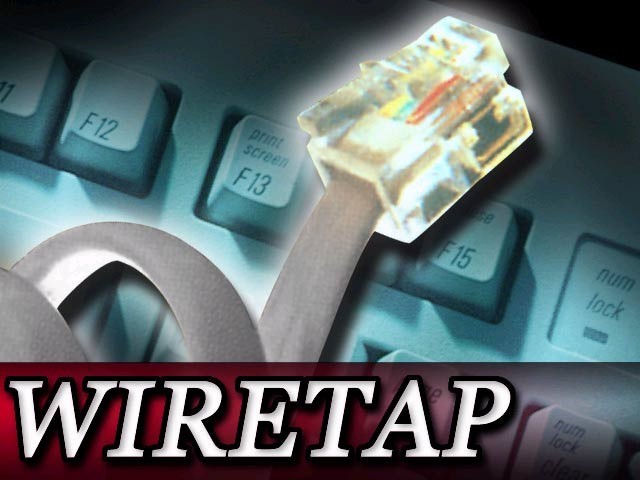The investigation by the department's Office of Professional Responsibility was shut down last year, after the investigators were denied security clearances. Gonzales told Congress that President Bush, not he, denied the clearances.
"We recently received the necessary security clearances and are now able to proceed with our investigation," H. Marshall Jarrett, counsel for the OPR, wrote to Rep. Maurice Hinchey, D-N.Y. A copy of the letter, dated Tuesday, was obtained by The Associated Press.
Hinchey and other Democrats have long sought an investigation into the spying program to see if it complies with the law. Efforts to investigate the program have been rebuffed by the Bush administration.
"I am happily surprised," Hinchey said. "It now seems because we have a new attorney general the situation has changed. Maybe this attorney general understands that his obligation is not to be the private counsel to the president but the chief law enforcement officer for the entire country."
The OPR investigation was begun in February 2006 but was shut down a few months later when the National Security Agency refused to grant Justice Department lawyers the security clearances to ask questions about the program. Justice Department officials said Gonzales recommended Bush approve the clearances, but the president said no.
White House officials referred questions to the Justice Department.
The investigation "will focus on whether the DOJ attorneys who were involved complied with their ethical obligations of providing competent legal advice to their client and of adhering to their duty of candor to the court. Because this matter involves a pending inquiry, I can't comment further," Justice Department spokesman Brian Roehrkasse said in a statement.
The Office of Professional Responsibility was created to ensure that Justice Department lawyers do not violate ethical rules. It is not authorized to investigate activities of the National Security Agency.
Bush's decision to authorize the spy agency to monitor people inside the United States, without warrants, generated a host of questions about the program's legal justification.
The administration has vehemently defended the eavesdropping, saying the NSA's activities were narrowly targeted to intercept international calls and e-mails of Americans and others inside the U.S. with suspected ties to the al-Qaida terror network.
A separate Justice Department internal investigation was opened last year by the agency's inspector general. Those investigators received their security clearances around the same time the OPR investigators' were denied, and their probe is ongoing.
Democrats have complained in the past that neither probe reviews whether the surveillance program violates the Constitution, the kind of decision usually reserved for the courts.
News of the reborn investigation comes a day before the first formal ceremony marking Mukasey's new post as head of the Justice Department.
Supreme Court Chief Justice John Roberts will administer the ceremonial oath to Mukasey, a retired federal judge who has promised to enforce laws fairly and keep the Justice Department free of political pressure from the White House.
Bush is scheduled to speak at the ceremony, set for 10:10 a.m. EST, after which Mukasey will address his employees for the first time.
Mukasey was sworn in last Friday in a brief, private ceremony that allowed him to start receiving daily classified briefings from his national security aides.
Mukasey, the third attorney general of the Bush administration, has 14 months until the president's term is up to turn around the beleaguered department. Gonzales resigned in September amid charges that he allowed politics to illegally interfere with personnel decisions and lied to Congress about national security programs.
A department investigation also is looking at last year's firings of nine U.S. attorneys - and whether at least one of them was dismissed because he refused to target Democratic candidates shortly before the 2006 elections.
Mukasey, nominated by Bush the day Gonzales left the department, is a retired chief judge of the U.S. District Court in Manhattan.
His confirmation by the Senate hit a brief - but serious - snag after he refused to say point-blank that he considered a harsh interrogation tactic known as waterboarding to be torture.
The Senate narrowly confirmed him late Thursday, 53-40. Critics noted that marked the slimmest margin by which an attorney general was confirmed in more than 50 years.

Wiretapping
http://accesswdun.com/article/2007/11/203996
